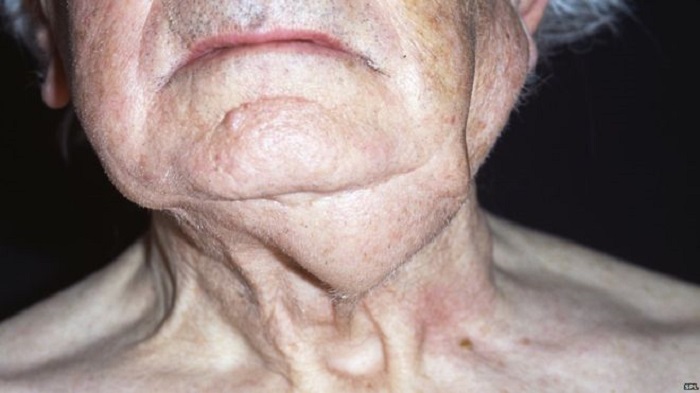Nivolumab significantly improved the survival odds of patients with these hard-to-treat tumours.
It is already available on the NHS for people with advanced skin cancer.
But experts say more research is needed before offering it routinely to patients with other cancers.
New hope
Immunotherapy is seen as one of the most exciting developments in cancer treatments in years.
While it cannot cure every cancer, mounting evidence suggests it can buy some very ill patients valuable time.
The phase-three trial of nivolumab, presented at the American Association of Cancer Research, suggests the drug can extend survival time by months, even when the cancer is advanced and aggressive.
In the trial, 240 patients with head and neck cancer were given nivolumab, while another 121 were given standard chemotherapy.
After a year, 36% of patients treated with nivolumab injections were still alive compared with 17% of those on chemo.
UK trial leader Prof Kevin Harrington, from the Institute of Cancer Research and the Royal Marsden NHS Foundation Trust, said the results were "a potential game changer" for head and neck cancer, "introducing a new drug treatment into our armoury that at last is better than standard chemotherapy".
"Once it has relapsed or spread, head and neck cancer is extremely difficult to treat, with surgery and radiotherapy often impossible," he said.
"So it`s very good news for patients that these interim results indicate we now have a new treatment that works, and can significantly extend life."
About 10,000 patients a year in the UK are diagnosed with a head or neck cancer - cancer of the mouth, lips, voice box, throat, nose, sinuses and salivary glands.
Dr Emma King, of Cancer Research UK, said: "These results could have a significant impact for head and neck cancer patients who no longer respond to treatment.
"They also reinforce the important shift that we are seeing towards using immunotherapies for cancer treatment.
"Before Nivolumab can be used routinely to treat head and neck cancer in the UK, it will need to approved by NICE [the National Institute for Health and Clinical Excellence]."
More about:
















































